Roza Bielauskienė will speak on the topic of the “The United Kingdom: King David” at the Lithuanian Jewish Community at 1:00 P.M. on Sunday, March 24.
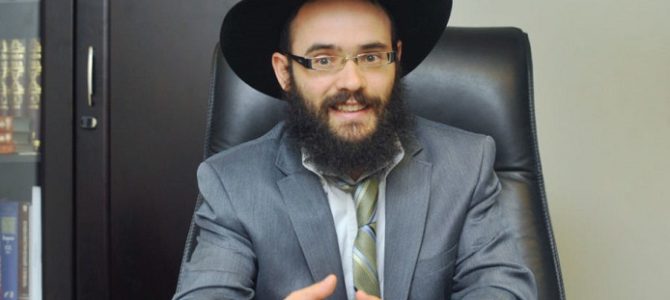
US Embassy Tallinn Condemns Attack on Rabbi
The United States embassy in Tallinn condemned an incident in the Estonian capital during which a man hurled insults at Rabbi Efraim Shmuel Kot.
A 27-year-old was being detained by traffic police Saturday for riding the tramway without a ticket when Rabbi Kot and family walked past on their way to shul. The man reportedly yelled “Heil Hitler,” “Sieg heil” and “What are you staring at, Jew? You’re going into the oven” in Estonian.
The US embassy issued a statement condemning the verbal assault, calling it hate speech, and saying it had no place in modern society. The embassy warned words matter and can turn into action if ignored.
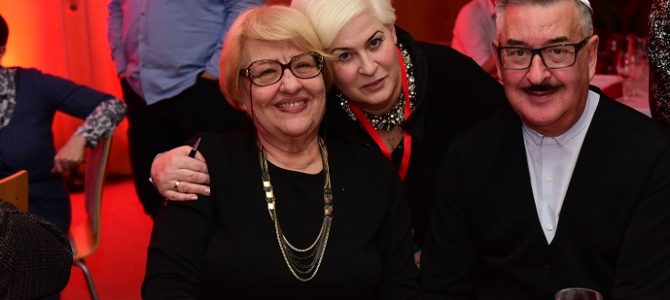
Limmud 2019 in Druskininkai
The Limmud tradition is about Jewishness and identity. Once per year the LJC organizes the traditional Limmud conference so members can come together, celebrate Sabbath together, take in many interesting lectures. Limmud comes from the Hebrew word “to learn.”
LJC programs director Žana Skudovičienė, veteran Limmud organizer, says this tradition demands a lot of work, energy and ingenuity.
This year our Lithuanian Limmud was held at the Europe Royal Hotel in the southern Lithuanian spa town Druskininkai with heavy attendance by LJC members and guests and young families with toddlers. Skudovičienė said some of the parents had themselves attended Limmud as children decades ago.
This year’s Limmud seemed more intimate than in former years, according to attendees, with Jews gathering from all over Lithuania, less formal speeches and more music, dance and fun–with a real spirit of yidishkayt.
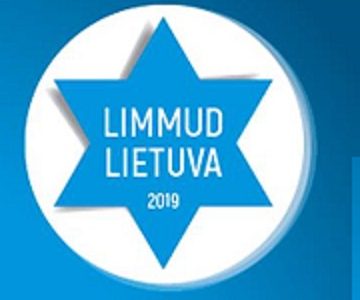
List of Speakers and Performers for Limmud 2019
Speakers and performers to include:
Ilya Kalmanovskiy, journalist, teacher, educational program enthusiast and moderator (Moscow)
Boruch Gorin, journalist, writer, editor of Lekhaim magazine (Moscow)
Juriy Tabak, religious studies expert, translator, author (Moscow)
Aleksandr Dukhovny, senior rabbi of progressive Jewish congregations (Kiev)
Sasha Galitsky, artist, author (Israel)
Regina Pats, cinema expert, to speak on new program of Israeli films (Tallinn)
Dr. Lara Lempertienė, scholar, director of Lithuanian National Library’s Judaica Studies Center
Bar/Bat Mitzva Ceremony at Choral Synagogue in Vilnius
A bar and bat mitzva ceremony was held at the Choral Synagogue Monday, March 11, conducted by Rabbi Sholom Ber Krinsky. Five young people sat at the set table and listened intently to the rabbi’s talk and congratulations on their rite of passage from youth to adulthood.
Parents and children gathered for this important religious ritual. Boys aged 13 and girls aged 12 are considered adults according to Jewish tradition. Bar mitzva literally means “son of the law” and bat mitzva “daughter of the law” because this is the age at which people become responsible for following all the laws of the Torah.
The young adults received symbolic gifts and the celebration continued with a feast at the table.
Bar and bat mitzvas are more than just a family celebration, they’re celebrated by the entire Jewish community. Congratulations to all the participants!
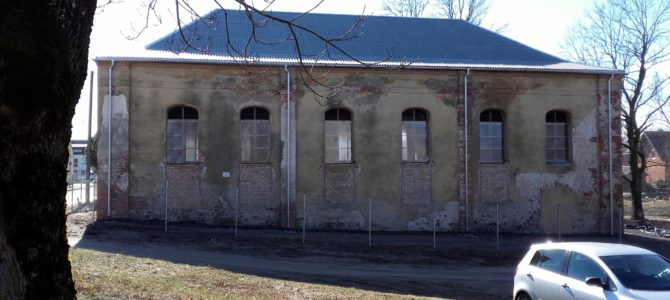
Work Continues on the Žemaičių Naumiestis Synagogue
Work to restore the synagogue in Žemaičių Naumiestis, Lithuania, began in 2018 and on March 6, 2019, the work to date was surveyed.
The Šilutė regional administration allocated almost 100,000 euros for the renovation work.
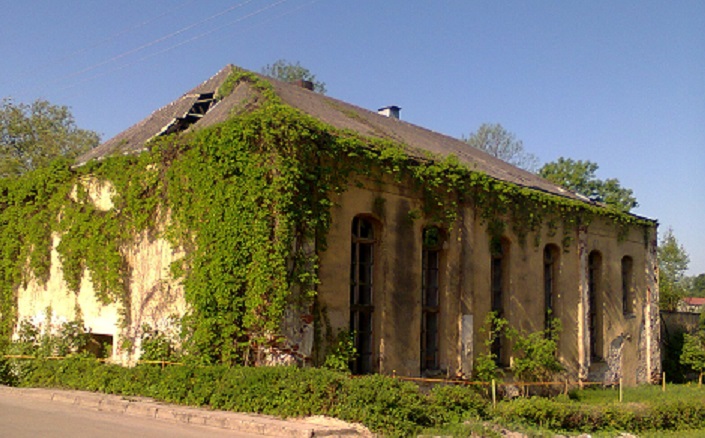
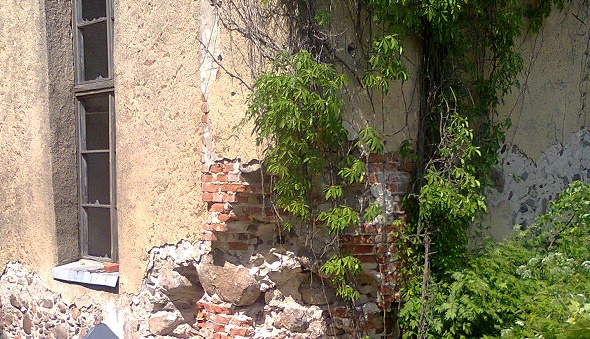
Photos from before work began
The town had a large Jewish population before the Holocaust who built this brick synagogue in 1816. In the Soviet era the synagogue was used as a Palace of Culture.
Israeli Ambassador Remembers Ethiopia
Israeli ambassador to Lithuania Amir Maimon experienced deja vu watching the film Fig Tree (2018), according to the Lithuanian news site 15min.lt
According to the Toronto Film Festival description of the film, “Mina is 16 years old. The Ethiopian Civil War has been underway her entire life. She lives with her brother and grandmother in a humble house with newsprint for wallpaper. The family is Jewish and is planning to flee Ethiopia for Israel, where Mina’s mother awaits their reunion. But this plan leaves out the person Mina loves most: Eli, her Christian boyfriend, who lives in the woods so as to evade being drafted into Mengistu Haile Mariam’s army. Mina hatches a scheme to save Eli, but everyone and everything seems set against her.”
Ambassador Maimon was part of a delegation sent to Ethiopia to open an Israeli embassy there in December of 1990. The film is set in 1989.
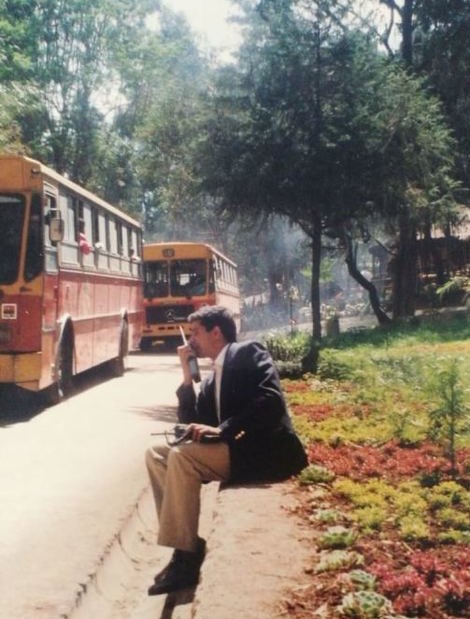
Amir Maimon in Ethiopia, 1990
Full story in Lithuanian here.
Borisas Traubas, Rūta Mikelaitytė-Kašubienė, Boris Livschitz to Perform in France

Violinist Borisas Traubas, pianist Rūta Mikelaitytė-Kašubienė and violinist Boris Livschitz are to perform at the Carpentras synagogue, built in 1367 and located in Carpentras in southeastern France, at 5:00 P.M. on March 10. Tickets cost 15 euros and reservations can be made by telephone by calling +33 4 90 63 39 97

Limmud 2019 March 15-17 in Druskininkai, Lithuania
The educational and entertaining conference on Judaism Limmud 2019 will be held in Druskininkai, Lithuania, from March 15 to 17. The program includes the weekend in the scenic Lithuanian spa town, activities, valuable lectures, seminars on academic excellence, screenings of films, excursions, a special Sabbath and much more.
The three-day conference will be held at the Europa Royale hotel at Vilniaus alley no. 7 in Druskininkai.
For more information, call +370 67881514 or send an email to zanas@sc.lzb.lt
Registration is now closed.
Speakers to include:
Bar/Bat Mitzvah Ceremony at Choral Synagogue
The Choral Synagogue in Vilnius is to hold a bar and bat mitzvah ceremony at 4:00 P.M. on March 11 for boys about to turn or already 13 and girls about to turn or already 12.
To register send an email to rabbi@jewishlita.com or call 8 685 08 550.
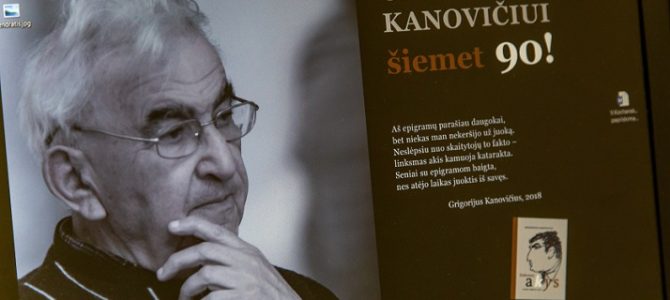
Litvak Literature: Grigoriy Kanovich at 90
by Sergejus Kanovičius
My father wrote “Shtetl Love Song” at the age of 84. And he promised himself he wouldn’t write more: “it’s better I not write, and I don’t want to write more poorly.” Over the last six years his books have been translated to and published in English, German and Macedonian. They are being translated now as well, and soon more will appear. No matter how my brother and I have tried to provoke Father to write more, he firmly keeps to the promise he made to himself. Not a month goes by that he doesn’t get a letter from publishers or journalists asking for interviews, to attend a book launch or to travel to deliver a lecture. Very rarely he agrees to answer questions in writing: “I have said everything already, I have written everything, let them read my books.”
It’s not the first time when his name is heard at the bustle of the book fair, when his selected writings are presented, Rūta Oginskaitė’s memoir biography “Gib a Kuk” [Take a Look] and now “Linksmos Akys” [Happy Eyes]. But the author is not at the book fair. And he won’t be at the next one, although there might be a different book. If not at the Lithuanian book fair, then maybe the German, Polish or English. As I recall Father never liked answering questions about his work. It seemed incomprehensible to him how an author could also interpret that which he has created, and he didn’t understand either how one could explain what one has experienced and given birth to. Just take me and read. Father doesn’t like questions about his work. Unless those questions are broader, about a worldview. But this is in the books, too.
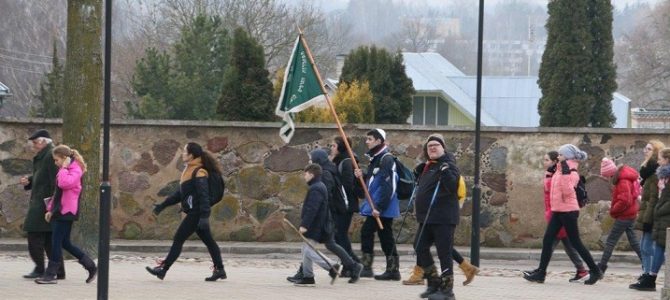
Jewish Scouts Hike to Synagogue in Žiežmariai
The Lithuanian Jewish Community invited Jewish scouts for a winter hike on February 17. The delegation left by train for Žasliai where they were welcomed by the town alderman and local students. The scouts presented the community and the school with a gift, the ghetto diary of Yitzhak Rudashevski in Lithuanian.
The hike began through Strošiūnai Forest where the scouts learned how to build a fire and had a snack.
Hikers later visited the Jewish mass murder site in Strošiūnai Forest where everyone laid a stone in memory of the victims. The hike concluded at the Žiežmariai Cultural Center where the scouts, along with Kaišiadorys regional administration head Vytenis Tomkus, they raised and viewed the traditional Žiežmariai haShomer haTzair scouting flag, generously donated for the occasion by the Vilna Gaon State Jewish Museum.
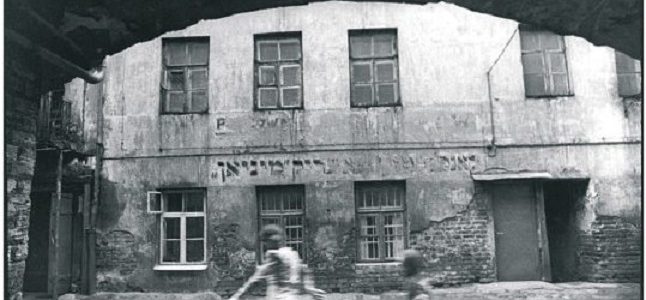
Aaron Garon’s Book Vilnius Jewish World Presented at LJC
Aaron Garon (Garonas, 1919-2009) was born in Vilnius and most of his life was associated with his beloved home town. He moved to Israel in 1992 but always looked forward to the summers when he would return to Vilnius.
Garon became a witness to the phenomenon of the Vilnius Jewish world at a young age and harbored a life-long and deep love of Jewish culture and his native Yiddish language.
A reserved and proud Litvak, Garon painfully witnessed, too, the decline of Yiddish: “How can we erase a thousand years of Jewish cultural history?”
Garon’s terse tales of his home, parents and school–all of which he adored–served as a kind of return to paradise lost for him: “If there is anything positive in me, I must thank my parents and school and our wonderful principal Sofia Gurevich for this,” he wrote.
The Jewish world of Vilnius thrived for centuries but was wiped out in the Holocaust, although survivors continued to speak Yiddish with their families for decades. Most of them made their way to Israel, and Yiddish was no longer heard on the streets of Vilnius. This book–a Lithuanian translation of select articles by Garon the journalist and writer–is more than just vivid memories, it is a testimony to and a painting in Yiddish of a lost world which might teach future generations just how much the city lost. The new book is in both Lithuanian and Yiddish.
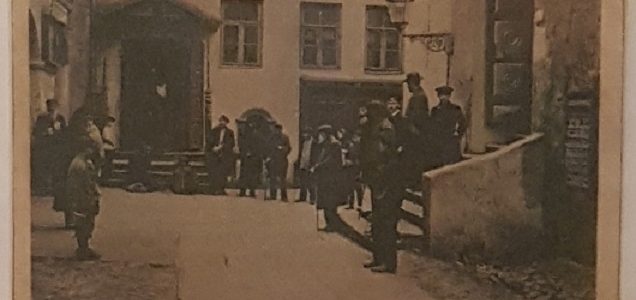
Exhibit by Kaunas Collector at Choral Synagogue in Vilnius
An exhibit of items in the collection of well-known collector Michailis Duškesas regarding pre-war Vilnius Jewish organizations is on display at the Choral Synagogue in Vilnius showing the rich and active life of Vilnius Jews before the Holocaust.
Thank you to Michailis and Natalija Duškesai of Kaunas who made the effort to organize and set up this unique exhibit in Vilnius.
The second floor of the synagogue is still hosting an exhibit of photographs of wooden synagogues as well. The photos were donated by Daumantas Todesas, director of the Jakov Bunka support and welfare fund.
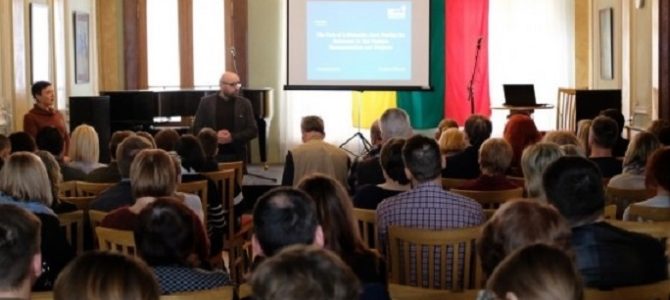
Fate of Litvaks in the Holocaust in Yad Vasherm Documents and Projects
Serafima Velkovich from Israel delivered a public lecture at the Chaim Frankel villa on February 14, 2019, called “The Fate of Litvaks in the Holocaust in Yad Vasherm Documents and Projects.” The event was intended to mark the 75th anniversary of the liquidation of the Šiauliai ghetto. The lecture was in English with simultaneous translation to Lithuania. Velkovich works in the archives of the Yad Vashem Holocaust memorial institute in Israel. The event was attended by members of the Šiauliai Regional Jewish Community, Lithuanian MP Stasiys Tumėnas’s advisor Nerijus Brazauskas, representatives of the local municipal and regional administrations, employees from the Aušra, Joniškis and Pakruojis Museums, high school students from Šiauliai and local public figures and members of the public.
The event was organized by the Šiauliai Regional Jewish Community. Partners included the Goodwill Foundation, the International Commission to Assess the Crimes of the Nazi and Soviet Occupational Regimes in Lithuania, the Aušra Museum in Šiauliai, the Klaipėda Jewish Religious Community, the Kaunas Jewish Religious Community, the Conference of European Rabbis, descendants of Litvaks abroad, the Panevėžys Jewish Support Association and the Jewish Cultural Heritage Route Association.
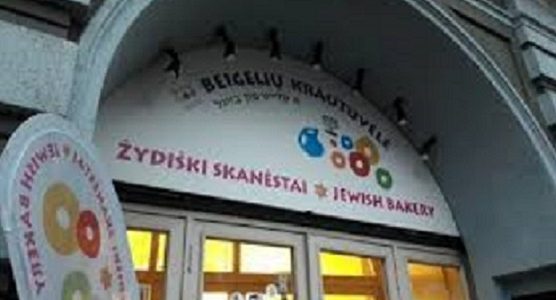
Bagel Shop Celebrates Third Birthday
The Bagel Shop Café is the café the Lithuanian Jewish Community opened three years ago on the first floor. Celebrating Litvak culinary heritage and traditions, the Bagel Shop makes bagels according to a family recipe and makes Sabbath challa every Friday, as well as many other items, and special foods on holidays. It began as an idea in 2014, as part of a tolerance campaign of the same name sponsored in part by a grant from Norway and aimed at fighting discrimination and anti-Semitism. Eventually the Bagel Shop became a real bagel shop.
Three years later, we’ve decided to surprise our customers and visitors with a presentation of Israeli street food and culture. Throughout February we’ll be baking pita, making falafel and talking about food.
Everyone’s invited at 10:00 A.M. on Sunday, February 17, to an educational celebration at the LJC where you’ll have the opportunity to sample falafel and sabih made the Israeli way, with musical accompaniment. Israeli ambassador to Lithuania Amir Maimon will talk about Israeli street food and Rabbi Sholom Ber Krinsky will teach on the topic of kosher food. Vilnius Jewish Religious Community chairman Simas Levinas is to take part in the event and synagogue cantor Shmuel Yatom will perform. Visitors will also have the chance to speak personally with Bagel Shop chef Riva Portnaja and others about Jewish cuisine.
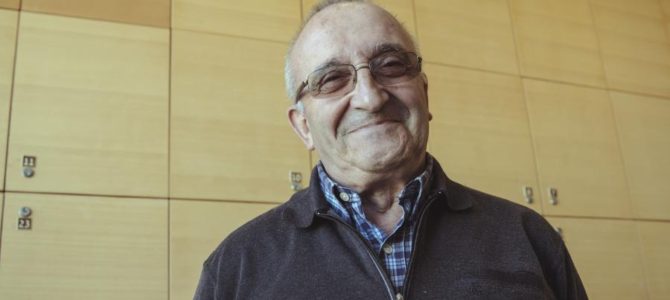
The Catholic Priest Who Discovered He Was Jewish
by Kostas Kajėnas
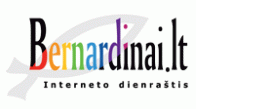
Since his birth Romualdas Jakubas Veksleris-Vaškinelis was raised Catholic and grew up to become a Catholic priest. He discovered later he was Jewish and travelled to Israel where he met his ultra-Orthodox relatives for the first time. The return to his roots was difficult. On the one hand there was the joy of discovering them, on the other: a confrontation on the rights of Jews to move to Israel.
The unusual life of this person with two names and two surnames began in World War II. He was born in Švenčionys, Lithuania, and became the only person in his family to survive the Holocaust. The infant survived because he was rescued by a Polish couple, Piotr and Emilia Waszkinel, who accepted him into their household when his parents Jakub and Batya Veksler asked them to during the destruction of the Švenčionys ghetto. The Polish couple baptized him and raised him as a Catholic.
Full story in Lithuanian here.
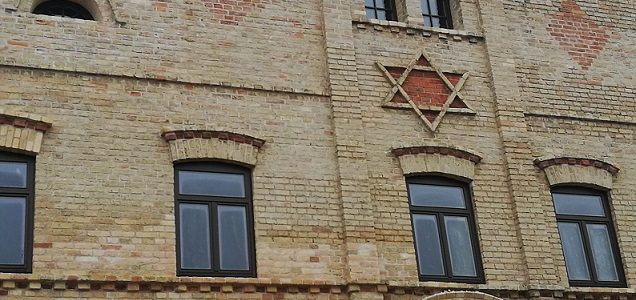
Synagogues: The Difficult Road to Revival
by Kazys Kazakevičius
Of the almost one-and-a-half thousand synagogues in Lithuania before World War II, only about 80 have survived to the present. Only two are operational and all other buildings are being used for other purposes or stand empty. It takes a lot of money to revive a synagogue for new life. The Jewish communities don’t have it, and neither do the municipalities which often become the owners of synagogues where there are no Jewish communities. Some EU support helps, at least.
An opportunity for fully restoring a former synagogue in Alytus, Lithuania, has come up; after the war the synagogue became a salt storehouse and a chicken hatchery. In January the city mayor’s office signed an agreement with a contractor for the further capital renovation of the synagogue built in 1911 which has been undergoing some repairs for three years now. The plan foresees a year-and-a-half’s worth of work for 400,000 euros. Around half of that cost will come from EU funds with the municipality picking up the rest. Specialist Ingrida Leskevičienė of the Alytus mayor’s office’s department of finance and investments reported the building is to house a visual arts center as a branch of the Alytus Regional History Museum. The first floor is to be used as an exhibition hall to host exhibits, conferences, seminars, lectures, book launches and showings of films.
Lithuanian Jewish Community chairwoman Faina Kukliansky said, however, there are still synagogues whose fates are causing great concern. Renovating or rebuilding them, even if funds were available, wouldn’t make sense if there was no on to use the buildings.
Full story in Lithuanian here.
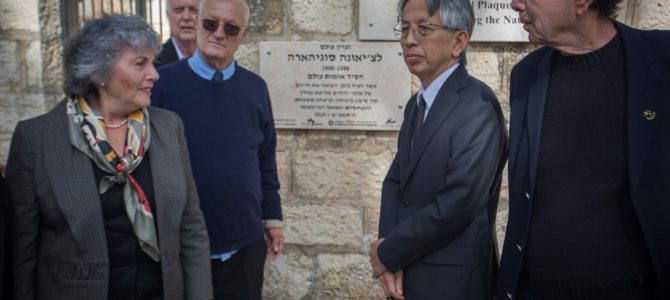
Chiune Sugihara Remembered on Mount Zion in Jerusalem
Photo: Rolan Novitsky
A special ceremony to honor WWII Japanese diplomat in Lithuania Chiune Sugihara (杉原 千畝 “Sempo”) was held in Jerusalem on Holocaust Remembrance Day, January 27.
A memorial plaque to Righteous Gentile Sugihara was unveiled at the Chamber of the Holocaust or Martef haShoah on Mount Zion in Jerusalem.
Sugihara was Japan’s vice-consul in Kaunas, Lithuania, from March, 1939, to August, 1940, during which time he issued transit visas to Lithuanian and Polish Jews fleeing the approaching scourge of Nazi Germany, saving more than 6,000 lives. In 1985 the Yad Vashem Holocaust authority in Israel awarded him the title of Righteous among the Nations. A Russian Orthodox believer, Sugihara is also honored by that church and is a saint in the Japanese Orthodox Church. Sugihara passed away in 1986.
At the ceremony on Mount Zion the song Way of the Samurai by Natella Botyanskaya dedicated to Sugihara’s memory was performed to the audience of relatives of Jews who survived because of him, Japanese embassy staff and organizers including representatives of Limmud FSU, the Claims Conference and March of the Living.
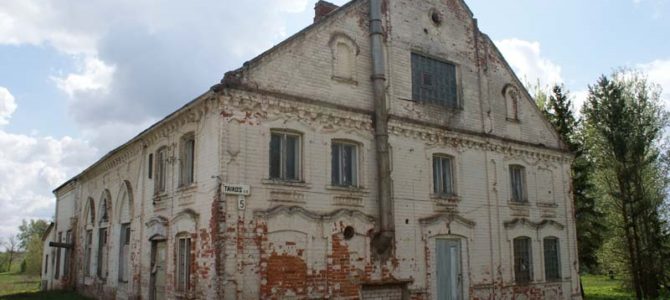
Synagogue in Pušalotas Receives State Protection
Lithuanian minister of culture Dr. Mindaugas Kvietkauskas has placed four cultural treasures under state protection: Petras Klimas’s villa in Kaunas, the synagogue in Pušalotas in the Pasvalys region, the former Lithuanian Foreign Ministry building in Kaunas and a building in Vilnius which formerly housed Jewish cultural institutions.
Full story in Lithuanian here.

